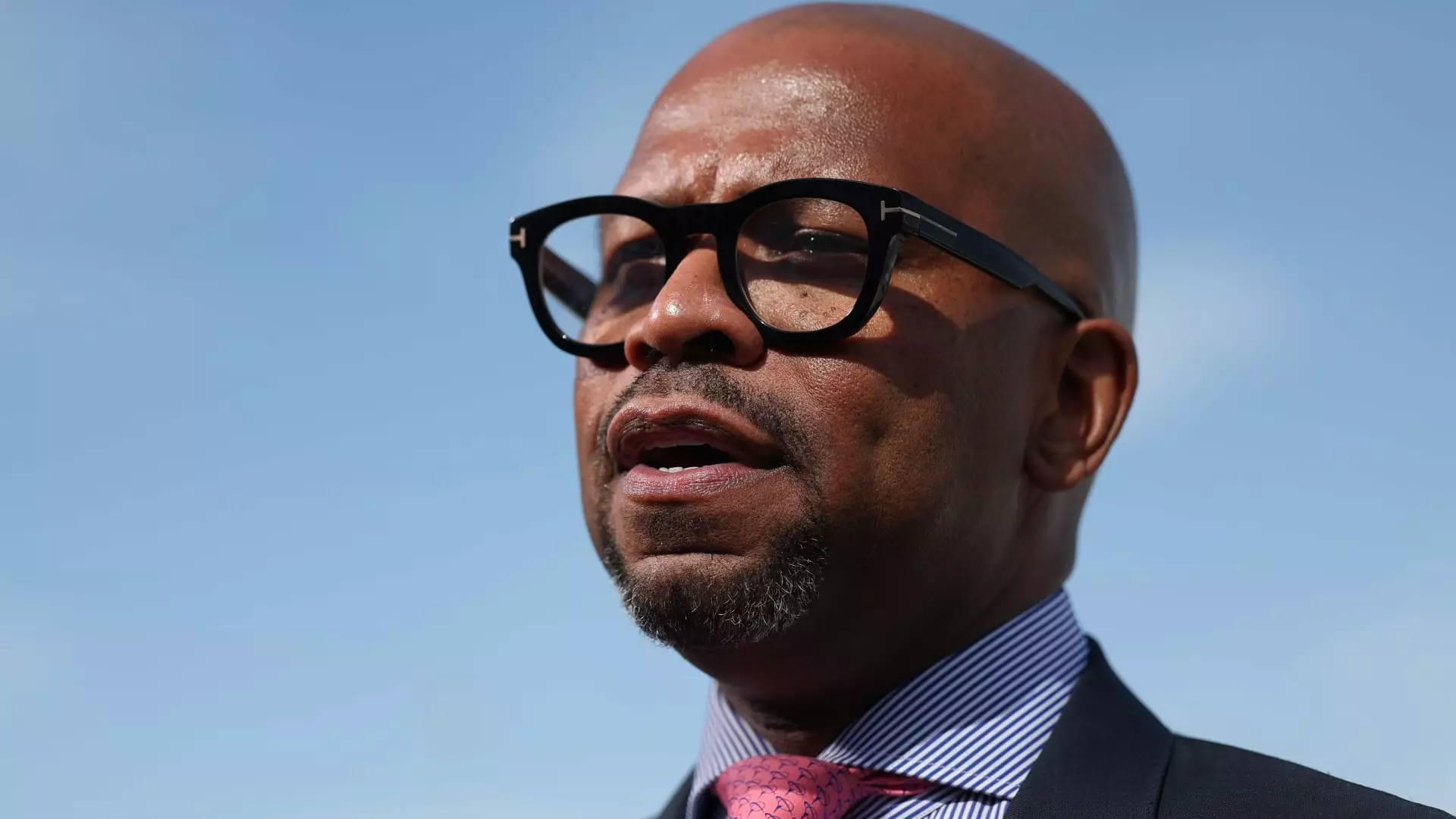The abrupt exit of Ted Colbert, head of Boeing’s defense unit, resonates as a significant shift within one of the largest aerospace manufacturers in the world. Effective immediately, this decision was heralded by CEO Kelly Ortberg in a note to staff, marking a pivotal moment since his own ascent to leadership in early August. Colbert’s departure is not only a notable leadership change but also underscores the challenges Boeing’s defense segment has faced lately.
Boeing’s defense, space, and security division has historically been a financial powerhouse for the company, contributing nearly 40% of its revenue in the first half of the current year. However, this success has been shadowed by a series of production difficulties and budget overruns, particularly with projects as high-profile as the new 747s designated to serve as Air Force One. These issues raise questions about Boeing’s capacity to fulfill governmental contracts and maintain regulatory standards, especially at a time when reliability is crucial for national security missions.
Ortberg’s sentiments focus on restoring trust, which highlights the critical nature of maintaining strong customer relationships in a sector where the stakes are inherently high. Trust is invaluable in defense contracting, where contractors must operate with transparency and integrity. The memo emphasizes a collaborative effort to enhance performance and honor commitments, which is especially poignantly articulated against the backdrop of Colbert’s departure. His 15 years of service may have brought valuable expertise, yet failing to address ongoing challenges could suggest systemic issues within Boeing’s operational strategies.
The choice of Steve Parker, the unit’s Chief Operating Officer, as interim head implies a need for continuity but also showcases the urgency of finding a permanent solution. The new leadership will need to navigate existing pressures while also revamping strategies to mitigate previously reported shortcomings in production schedules and budget management.
Looking ahead, the challenges are multifaceted. Colbert’s exit cannot simply be seen as a reaction to internal failures; it mirrors an industry-wide reckoning where performance and accountability come under intense scrutiny. For instance, Boeing’s Starliner spacecraft’s return without the expected NASA astronauts following their June mission to the International Space Station further complicates the narrative. Instead, NASA opted to utilize SpaceX’s Crew-9 vehicle, a decision that illustrates shifting perceptions of reliability in the space sector.
As Boeing faces mounting pressures to re-establish itself as a premier defense contractor, the future leadership must be adept at balancing innovation while ensuring delivery schedules are met. With competitors increasingly developing pivotal technologies, the need for Boeing to regain its competitive edge through strategic management and operational prowess has never been more critical.
The departure of Ted Colbert serves as more than just a routine leadership change; it is emblematic of broader operational challenges that Boeing’s defense unit must urgently address in order to restore client confidence and secure its position in a competitive marketplace.

